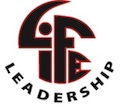 Peeling away the layers of rhetoric from reality in our Public School System, one discovers an interesting paradox; even though Americans enthusiastically support the Separation of Church & State, strangely, they do not feel the same vigor for Separation of Education & State.
Peeling away the layers of rhetoric from reality in our Public School System, one discovers an interesting paradox; even though Americans enthusiastically support the Separation of Church & State, strangely, they do not feel the same vigor for Separation of Education & State.
What are the real differences between religion and education?
By lifting the veil, looking underneath the shiny veneer, both reveal underlying presuppositions that are unprovable, making them more a matter of faith rather than science, requiring belief in doctrines that cannot empirically be proven true or false.
The administrators (High Priests) of both genres feed the faithful accepted doctrines, brooking no resistance to the approved creeds.
Don’t misunderstand me, I am not against organized religion nor organized education, the more of both the better, as far as I am concerned, for man and society.
Everything in life boils down to faith when you track back to first principles, since it deals with world-views and beliefs. My question to the State School Board or, if I may be so bold, the Priests of Education, is why, during the founding of America, was it so important to ensure the State never crossed into the religious sphere, protecting the people against a powerful centralized State Church, even going so far as to make it one of the ten amendments in the Bill of Rights?
The government wouldn’t consider creating a State Church, requiring mandatory attendance every Sunday, teaching State Doctrines at State Churches in every neighborhood; but we yield to our government the same level of control, requiring mandatory attendance, not on Sundays, but Monday through Fridays, educating all adolescents in State Doctrines at State Schools (Churches).
When State centralized education requires mandatory attendance of children at State School schools, teaching doctrines much like churches teach creeds, reaching into every home, I get a bit concerned.
The only options for parents, other than surrendering to tyranny, are to quit the public school system entirely, while still supporting them with their local taxes.
This doesn’t sound like freedom to me.
As I see it, religious doctrines and educational doctrines are merely different sides of the same coin.
Just as theories abound, teaching various religious creeds, suggesting the proper methods and principles to worship God, so too, theories abound teaching various educational creeds, suggesting the proper methods and principles to teach a child.
Yet, somehow, we believe an omniscient State will select just the right creeds for our child, regardless of his or her circumstances, ignoring our child’s family life, religious principles, or career aspirations.
Now I am a reasonable person, certainly willing to hear all rational discussions on the subject, but something strikes me as disingenuous, separating a man’s religious beliefs so completely from his educational beliefs.
To use just one example, suppose a young man was taught in the home or church, that God made men and women for each other, under the sacrament of marriage.
He might have a hard time swallowing any contrary doctrine, offered up in our State Schools.
Now before you bash me as a sexist, gender hater, etc, please hear my point, the point is, shouldn’t the same freedoms that apply to religion apply when referring to education?
Regardless of the specific doctrines one believes in, a higher doctrine ought to be the freedom to choose, since America is famous for being the “land of freedom.”
No one should be forced to endure an indoctrination against his will nor forced to submit his children to the same treatment.
If parents choose to send their children to another school, aligning better with their personal beliefs, they ought to have that right, transferring their tax dollars to the school of choice, instead of paying more.
I believe in freedom of choice so much, that I would fight for your right to disagree with my beliefs, choosing to send your children to another school; the school of your choice.
Freedom ensures that we all get the education for our children that we desire, not what the State desires.
Free discussion and free choices makes us all better, that’s what makes America great.
Thomas Jefferson, one of the earliest and strongest proponents of religious freedoms, shared these principles with his fellow Virginia delegates, arguing that it’s unjust to charge Presbyterians, Baptist, Congregationalist, etc, to support the Virginia Anglican State Church.
For example, if a Baptist moved to Virginia, he was required to pay a tax to support the Anglican church even though he didn’t attend nor believe the Anglican creeds.
Liberty loving Virginians could see the justice in Mr. Jefferson’s views and repealed the mandatory tax supporting the Virginia State Church.
The Separation of Church & State became a foundational plank in Virginia, eventually finding its way into the Constitution through the Bill of Rights, inspiring millions to come to America to enjoy religious freedom.
An interesting aside is George Washington’s thoughts on the Separation of Church & State, believing that churches built character through faith and creeds, Washington was hesitant to see churches not funded by public taxes; therefore, he proposed to tax all citizens, but give them a choice of which church to support.
Mr. Washington proposed a voucher program for religion, giving freedom of choice while ensuring that churches thrived to build character in the people for the benefit of society.
No, I’m not proposing launching church vouchers, invoking the name of the great George Washington to bolster my position.
I believe keeping government out of local churches, the true meaning of Separation of Church & State, has been a blessing, allowing each church to serve their God and congregations as they please, not requiring, nor asking for, government handouts.
My aside on Washington was merely to point out how important freedom of choice was to our Founding Fathers, a freedom sadly missing from our current Public School System.
How many millions of children over the years, having conflicting beliefs with the High Priest of Education, went to private schools by the free choice of the parents, paying a tuition for private school on one hand, while still being taxed by the State School on the other hand.
But let’s not forget the recent phenomena, if not outright revolution, called Home Schooling.
Over the last thirty years or so, millions of children have been home schooled, a challenging endeavor, where parents choose to educate their children, receiving no pay, giving of their time and money in a labor of love, but still suffering from the tax load of a State School they are no longer employing.
A young Thomas Jefferson, when faced with a similar situation in 18th century Virginia, confronted by the injustice of forcing parishioner of other sects to pay for a church they didn’t attend, loved freedom enough to do something about it.
Maybe George Washington’s idea, if converted from religion to education has merit.
School vouchers, a plan where each parent is given a voucher from the State to spend at the school of their choice, would solve the Separation of Education & State issue.
Giving each parent a voucher, allowing each family to choose the school that best fits their needs, brings free enterprise and decentralization to the school system.
The school options will increase and conflicts over doctrines will decrease by allowing parents to choose an education that marries with their religious beliefs and student’s career choices.
Perhaps America, that beacon of light, though flickering a bit of late, will remember its great heritage, standing against injustices, even if it doesn’t directly affect them; because tyranny, when given a chance to seed in society’s soil, sinks it roots deeply, consuming everything in its path.
I purposely kept this discussion at fifty thousand feet, not diving into the details of our State School System, not that there isn’t plenty to say, but only because I didn’t want to take away from my main message.
Few will argue that our State Schools are not broken, throwing more money at State Schools seems to be the only solution bantered about.
I have learned over the years that, if the riverbed is wrong, pouring more water in the river isn’t the answer. Until we start working on the foundation, the riverbed, nothing is going to change.
The riverbed change, in my opinion, is Separation of Education & State.
Of course, the State System is failing, because the State is involved in an area that is shouldn’t be. Can you name any government program designed to serve the public that hasn’t failed miserably?
It’s not the teachers, nor the students, but the entire system based upon centralized control that must be rooted out.
Thomas Jefferson understood this, which is why he decentralized religion from government, making a riverbed change; we need modern day Jeffersons to decentralize schooling from government, making another riverbed change.
I believe firmly that a free enterprise school system, where parents vote with their vouchers, rewarding excellence while punishing incompetence as all customers do in free enterprise, will build a world class educational system that can compete in today’s “flat world.”
The key is for free people to make free choices.
As over time, free people making free choices will always thrive over tyrannized people following State bureaucrats.
Perhaps a Jefferson will step up, creating a Separation of Education & State as Thomas Jefferson created a Separation of Religion & State.
****************************
 Orrin Woodward co-authored the New York Times bestseller Launching a Leadership Revolution. His first solo book RESOLVED: 13 Resolutions for LIFE made the Top 100 All-Time Best Leadership Books List. Orrin was awarded as the 2011 IAB Leader of the Year.
Orrin Woodward co-authored the New York Times bestseller Launching a Leadership Revolution. His first solo book RESOLVED: 13 Resolutions for LIFE made the Top 100 All-Time Best Leadership Books List. Orrin was awarded as the 2011 IAB Leader of the Year.
Orrin has co-founded two multi-million dollar leadership companies and serves as the Chairman of the Board of the LIFE Business. He has a B.S. degree from GMI-EMI (now Kettering University) in manufacturing systems engineering. He holds four U.S. patents, and won an exclusive National Technical Benchmarking Award.
He follows the sun between residences in Michigan and Florida with his lovely wife Laurie and their children. Orrin’s leadership thoughts are shared on his blog – orrinwoodwardblog.com.
 In the American founding era, most of the leading thinkers were rationalists.
In the American founding era, most of the leading thinkers were rationalists. Oliver DeMille is the co-founder of the Center for Social Leadership, and a co-creator of TJEd.
Oliver DeMille is the co-founder of the Center for Social Leadership, and a co-creator of TJEd.





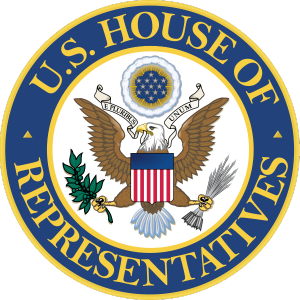 The future of America depends on the House of Representatives.
The future of America depends on the House of Representatives.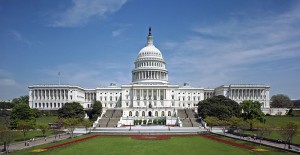
 The working middle class dreams of an actual meritocracy, where performance is rewarded regardless of race, creed, or color.
The working middle class dreams of an actual meritocracy, where performance is rewarded regardless of race, creed, or color.
 In a 2011 article, reporter Stephen Marche pinpointed the painful paradigm of today’s middle class:
In a 2011 article, reporter Stephen Marche pinpointed the painful paradigm of today’s middle class: Peeling away the layers of rhetoric from reality in our Public School System, one discovers an interesting paradox; even though Americans enthusiastically support the Separation of Church & State, strangely, they do not feel the same vigor for Separation of Education & State.
Peeling away the layers of rhetoric from reality in our Public School System, one discovers an interesting paradox; even though Americans enthusiastically support the Separation of Church & State, strangely, they do not feel the same vigor for Separation of Education & State. In the aftermath of the 2012 election, there have been numerous emails, posts, articles and blogs by business owners who say they are planning to sell or close their businesses, or just lay off enough workers that they can afford Obamacare for the employees who remain.
In the aftermath of the 2012 election, there have been numerous emails, posts, articles and blogs by business owners who say they are planning to sell or close their businesses, or just lay off enough workers that they can afford Obamacare for the employees who remain. A friend recently told me that he considers family relationships much more important than politics.
A friend recently told me that he considers family relationships much more important than politics.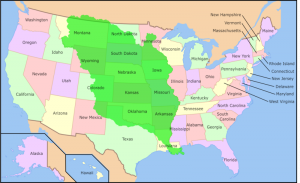
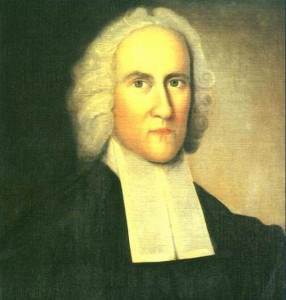 Jonathan Edwards was a preacher, theologian, a missionary to Native Americans, and shortly before his death, accepted the Presidency of the College of New Jersey (Princeton University).
Jonathan Edwards was a preacher, theologian, a missionary to Native Americans, and shortly before his death, accepted the Presidency of the College of New Jersey (Princeton University).
